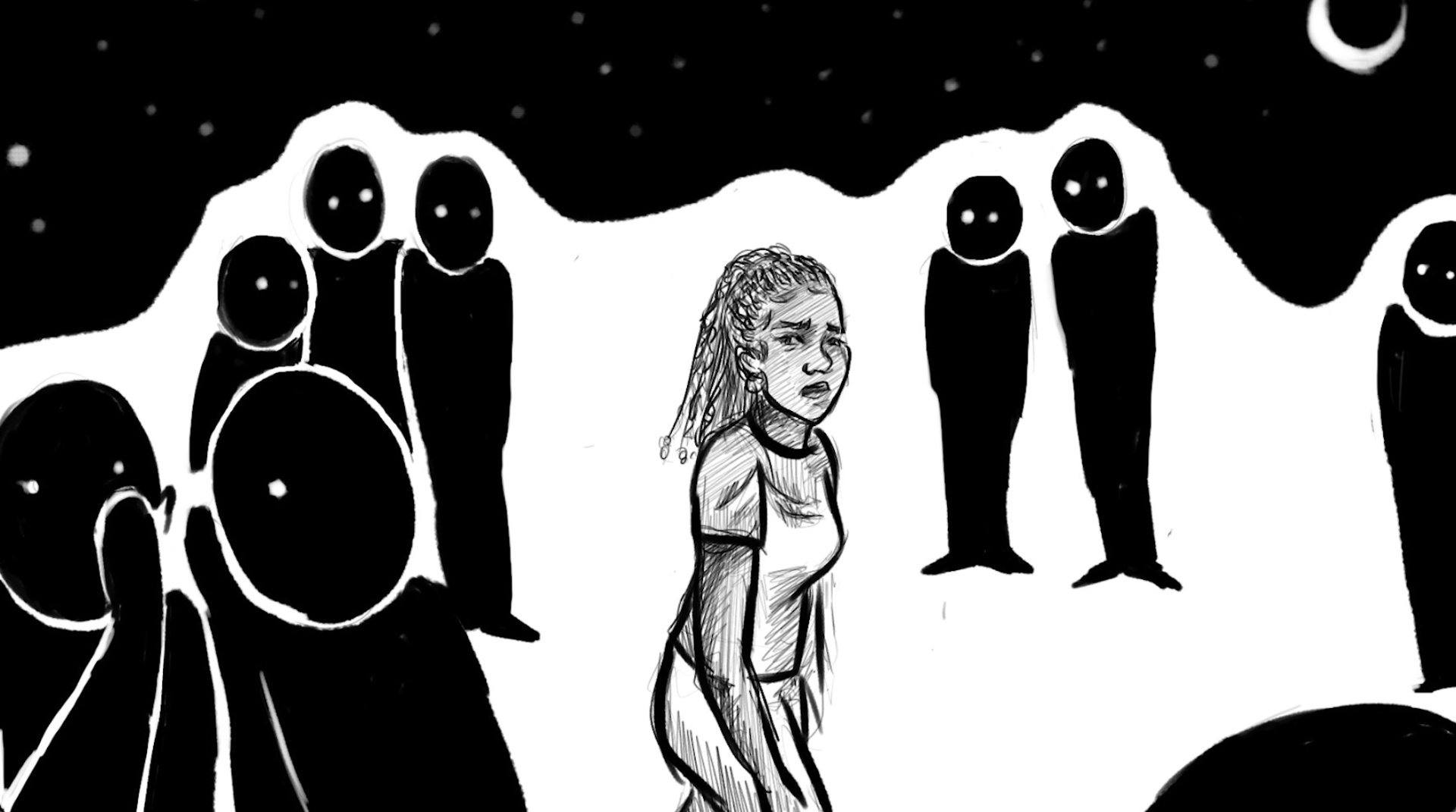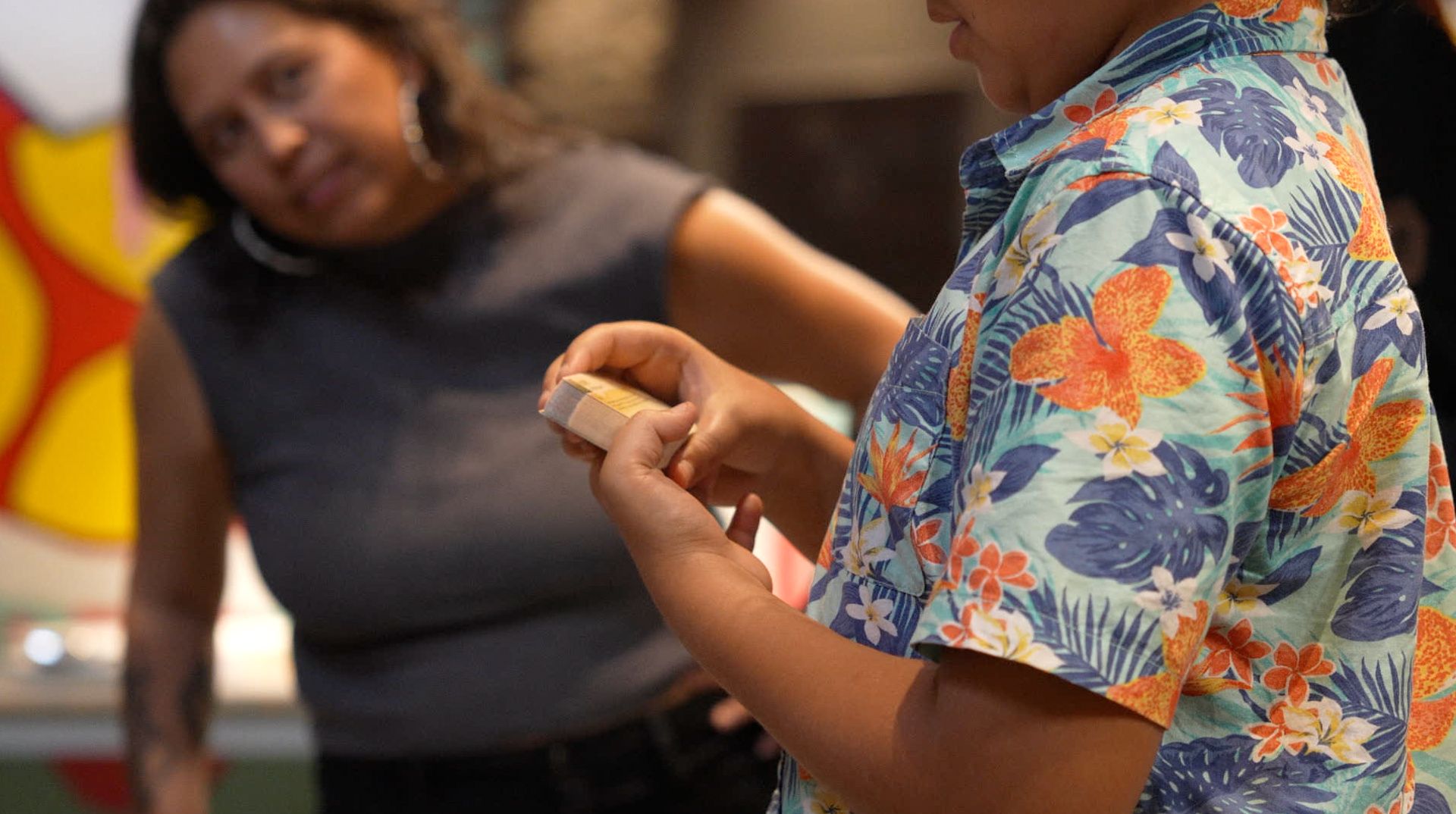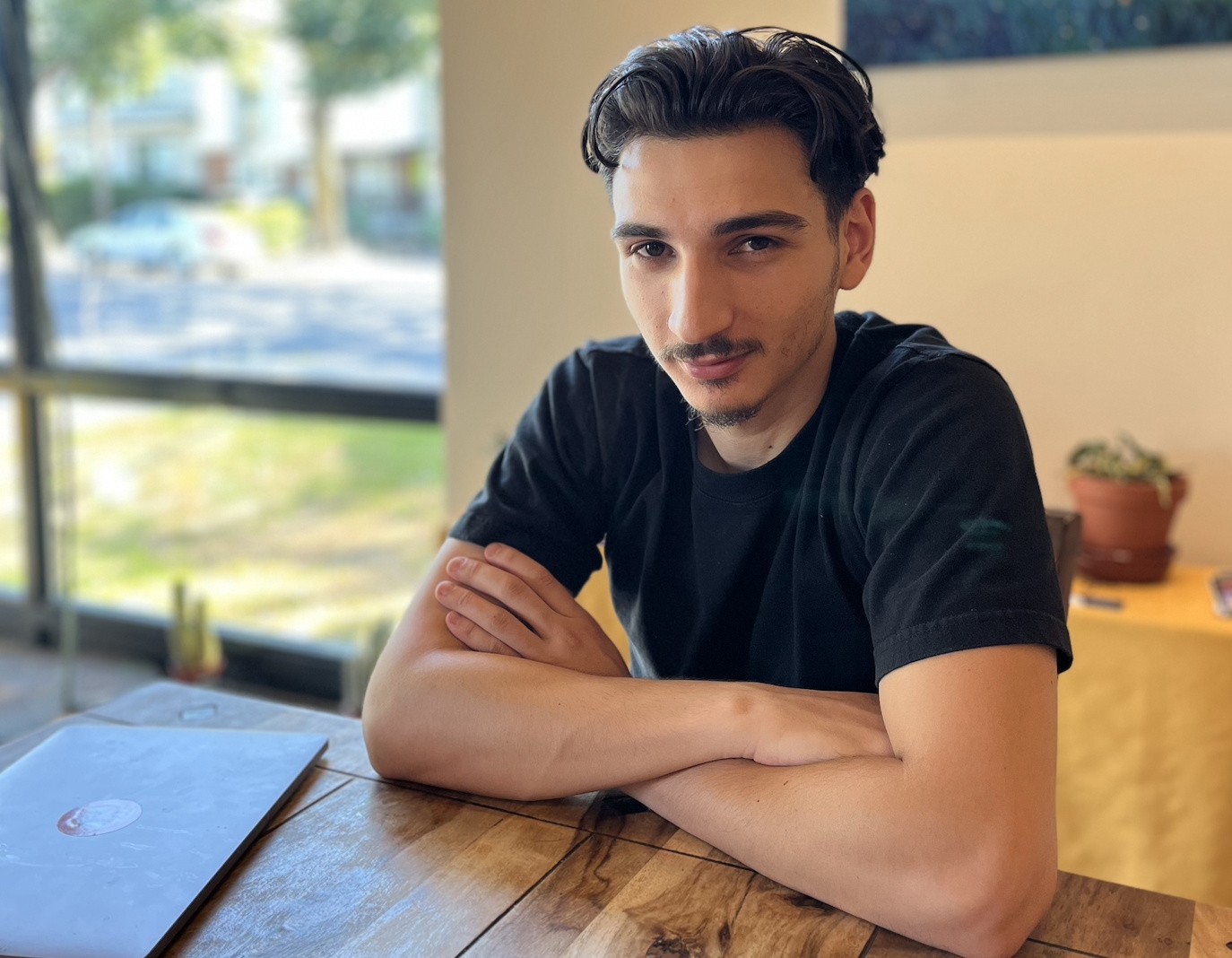Racialized women are often absent from breast cancer awareness campaigns. Yet studies reveal that black women are nearly three times more likely to develop triple-negative breast cancer, an aggressive cancer that is difficult to treat, than white women.
It is in the peaceful neighborhood of LaSalle that we meet Dorothy Rhau, president of Audace au Féminin, a non-profit organization that has been working since 2018 for the emancipation of black women. Moreover, the reputation of Audace au Féminin is well established. Today, we are talking to Mr.Me Rhau to find out more about her new campaign, “Funny Ben Nipples”, launched in February 2024. This inclusive prevention campaign aims to raise awareness about breast cancer among Black women and other racialized women.
Cheerful and charismatic, Dorothy wears wooden hoop earrings big enough to read” Black Women Are Dope, Periodt ! ”, an accessory that bluntly reveals the burden that is hers.
The soft light in his office adds a touch of comfort to our exchange. All around us, the awards Dorothy Rhau has won are a testament to her commitment and her successes. Despite the sweltering heat of that June day, the breath of the air conditioner made the room cold enough for Dorothy to shiver. She warms up with an herbal tea in her hand, ready to share with us the mission of “Nipples Ben Funny” with a contagious passion.
Black women with breast cancer are underdiagnosed
In Canada, there is no evidence that women in a particular community are more likely to develop breast cancer than others. It was in 2016 that, driven by her curiosity, Dorothy conducted research for her mother suffering from this disease and discovered American studies whose numbers astound her: black women are 2.7 times more likely to suffer from triple-negative breast cancer than white women.
This type of cancer spreads rapidly to other parts of the body, making the prognosis often less favorable for women who have it. She starts: “I've been seeing breast cancer campaigns for years, but we never talk about this data, which is more about black women. So we decided to come out of the shadows and make it clear to everyone that, even medically, Black women's health matters.”
Through “Funny Nipples,” Dorothy also fights against other diseases that affect more black women — such as sickle cell anemia and fibroids — which are often underdiagnosed.
“Why do we die more than others? We don't know it yet, she lets go in frustration. I don't know if black women and other racialized women are underdiagnosed because they're taboo topics in our communities or because they're taken less seriously medically.”
MMe Rhau believes that racial biases in the medical field are part of the reason for this lack of diagnosis. “There is a lot of work that needs to be done in the medical community to overcome racial biases. This prevents women from racialized communities from being taken seriously when they have any symptoms. And then, there is also an obvious lack of trust on the part of these communities in the medical profession because of colonial antecedents*” she declares.
But right now, Dorothy is focused on raising awareness about breast cancer in Black communities and among other racialized women. Its mission is to ensure that these women feel included in preventive measures and that they are informed of the risks they may run.
“My mother wanted to remain silent, I promised myself that I would speak out loud and clear about it”
As we talk, Dorothy's shoulders, initially tense in the cold, gradually relax. It evokes touching memories.
“My mom had breast cancer twice and the first time I didn't even know about it. It was a total secret, a taboo subject.”
It is by chance that she discovers her mother's secret. She told him that it was simply a cyst. But on the day of the surgery, Dorothy meets the doctor after surgery and innocently asks him for news about the cyst surgery. Surprised, he takes him away and reveals the truth to him.
“I was in shock! I kept it a secret to myself, I didn't tell her that I knew what she was hiding until she had cancer a second time,” she said.
This situation is not unique. In fact, it is common in Black and other racialized communities, Dorothy explains. “I have had several testimonies from women who have had the same story as me. Black women who hadn't been made aware that their mothers had cancer. I also met a Chinese woman whose mother died in April from triple negative breast cancer. She didn't know either. And a few months ago, we organized an activity for women affected by breast cancer. Some were in stage four of the disease and their children were not aware of it. I am talking to you about adult children, from 30 to 40 years old! ” she let it go.
“When I look at the dominant community, the white women, here — I admit it's never fun to talk about cancer — but they feel a lot freer than we do to talk about cancer openly. What we are not yet capable of doing,” she summarizes.
According to Dorothy, this silence around breast cancer is explained by multiple superstitions, often present in racialized communities. “There are urban legends and myths that white people don't understand, but that racialized communities understand: did someone spell us? Or does bad language mean that we won't get better and the disease will get worse? ” she lists.
“My mother wanted to remain silent until her last moments. She wanted everything to be done in secret; I promised myself that I would talk about it loud and clear! ” she exclaims.
“We're just starting to talk about cancer in Black communities. Before, you only learned that when the person was dead. So, there's all that education that needs to be done. And that's why we go a long way,” she concludes with an embarrassed smile.
Humor to break the silence
While we are talking with Dorothy, one detail comes back to me and makes perfect sense: the president of the NPO was already a comedian, before embarking on the Audace au Féminin adventure. In his “Nipples Ben Dr” campaign, his humorous background comes to the fore.
She states: “Humour is a powerful weapon for breaking taboos and for approaching sensitive subjects and making them accessible to all.”
The “Funny Nipples” campaign innovates by presenting breasts of various shapes, drawn in fun postures. For Dorothy, it's a way to de-dramatize the subject: “Of course it's not funny, but at the same time, the images are fun,” she says in an amused tone.
“We are far from the countryside with the pink ribbon and the depressed women who make you panic even more,” she says, laughing out loud. It was important for me to add humor so that everyone could talk about it. And over time, that's what I've been able to do.”
The “Funny Nipples” campaign was designed to be inclusive, in particular by presenting different nipple shapes that make you smile, but also aim to restore women's confidence. Dorothy explains, “Sometimes women with breast cancer have a mastectomy. Does a woman lose her femininity when she no longer has breasts? That may be the case for some. We wanted to help women appreciate a new form of femininity, to reappropriate this feminine identity that is dear to us, whether without breasts, with a reconstructed chest or with a scar.”
“Putting photos of racialized women in a prevention campaign is good, but it's not enough”
One of the reasons behind the “Funny Nipples” campaign, dedicated to black and racialized women, is their under-representation in the media, as Dorothy points out: “It's still surprising, when you look at breast cancer campaigns: if there are any on black women, it will be in English. In French, it's very rare. It is only today that we are starting to put black people in campaigns, but that is not enough. Because, outside of these campaigns, who are the people around the table? ”
“We must exist in studies, we must exist in data, we must exist in campaigns! she hammers. The African American population is not the same as the one here. We do not have the same living conditions as in the United States, for several reasons. That's why it's crucial to get data that's specific to our context.”
Dorothy is convinced that in order to create change, it is imperative that researchers and hospitals work closely with organizations close to the communities. “For things to change, we need to be in direct contact with our community and act together to make a difference,” she says.
With this in mind, “Tétons Ben Dr” collaborates with The Rally of Haitian Nurses and Practical Nurses of Montreal, but also The Canadian-Haitian Doctors Foundation, Interdisciplinary Center for Black Health and more.
In the future, the campaign wants to expand and create capsules in the native language of each community. “We are sure to reach as many people as possible and to include them in this way,” she shares.
Feel yourself!
Before leaving us, Dorothy reminds us that breast cancer affects everyone, regardless of gender. “Men too can feel themselves to see if there is a hump or something like that.” She also recalls the results of American studies indicating that black women should start getting tested as early as age 30, rather than waiting for the recommended age of 40.
“Feel yourself! I encourage everyone to do self-exams or get screened by getting a mammogram. I also encourage you to participate in clinical trials in order to improve studies,” she concludes.
To go further:
*Canadian studies show the distrust of Black and Indigenous communities in the medical profession, in particular because of forced experiments carried out during various colonial periods:
- Systematic racism in healthcare boosted COVID-19 vaccine mistrust in Black communities: study
- Broken Trust Drives Native Health Disparities
From August 9 to 11, Audace au Féminin is organizing the International Black Women's Show on the two floors of the Grand Quay in the Port of Montreal. The “Funny Nipples” campaign will be broadcast there for prevention purposes, and health experts will lead workshops. This will be an opportunity to learn how to feel yourself properly!
Links to understand the current situation:
Gaps in cancer research affecting Black communities in Canada
Breast cancer and immigrant and racialized women




.avif)




.jpg)
%20(1)%20(1).jpg)